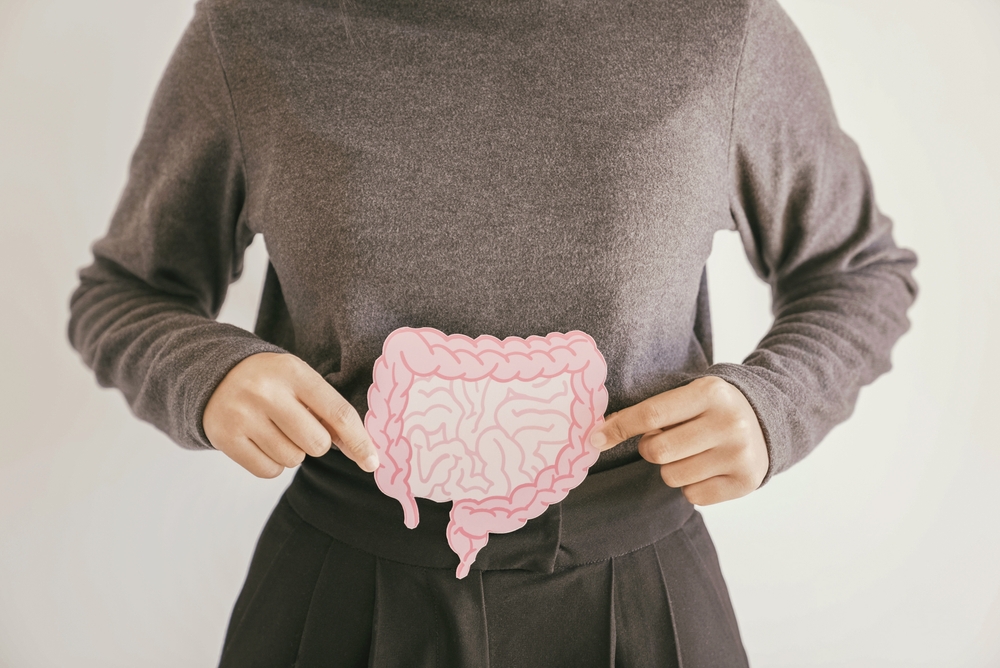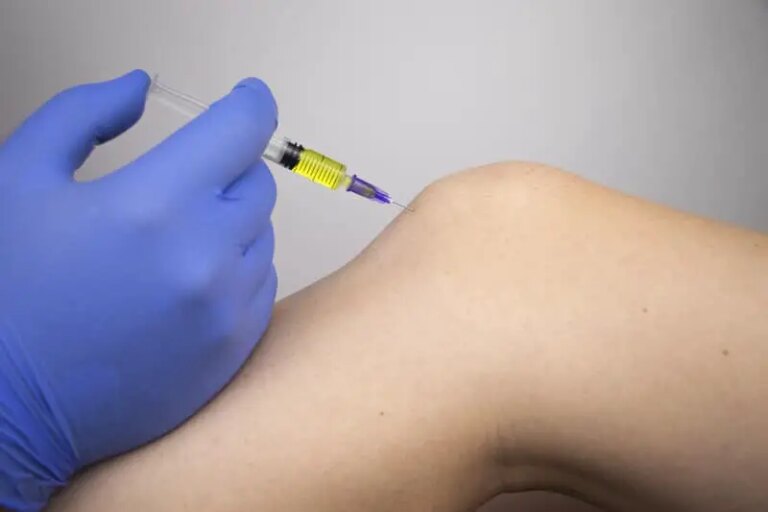Parkinson’s disease, a neurodegenerative disorder affecting movement and coordination, has long puzzled scientists with its mysterious origins. Recent groundbreaking research suggests that Parkinson’s starts in the gut rather than the brain, offering a fresh perspective on understanding and potentially preventing this debilitating condition.
A study led by Bojing Liu from the Karolinska Institute in Sweden has provided compelling evidence linking Parkinson’s disease to the gut. By examining patients who underwent a procedure called truncal vagotomy, which involves removing sections of the vagus nerve that connects the digestive tract to the brain, researchers discovered significantly lower rates of Parkinson’s. This finding supports the growing hypothesis that Parkinson’s may originate in the gut, opening new avenues for combating this complex disease.
The Gut-Brain Connection: How Parkinson’s Starts in the Gut
Parkinson’s disease is characterized by the gradual degeneration of neurons in the brain, leading to symptoms such as tremors, stiffness, and difficulty with movement. These symptoms worsen over time, significantly impacting the quality of life. The exact cause of Parkinson’s remains unknown, making it a challenging condition to diagnose and treat effectively.
The traditional view has been that Parkinson’s starts in the brain. However, the emerging hypothesis that Parkinson’s starts in the gut introduces a new dimension to understanding this disease.
The gut-brain axis, a complex communication network linking the central nervous system and the gastrointestinal tract, plays a crucial role in maintaining overall health. Central to this network is the vagus nerve, which facilitates communication between the gut and the brain. Emerging evidence suggests that disruptions in this connection could be pivotal in the development of Parkinson’s disease.

New Research Findings: Strengthening the Link Between Parkinson’s and Gut Health
Recent studies have provided compelling evidence to support the theory that Parkinson’s starts in the gut. A prominent study led by Bojing Liu at the Karolinska Institute examined 40 years of data from Swedish national registers, focusing on individuals who had undergone a truncal vagotomy. This procedure involves removing sections of the vagus nerve, a crucial component of the gut-brain axis. The findings revealed that those who had the procedure were 40% less likely to develop Parkinson’s disease compared to the general population.
The study analyzed data from 9,430 people who had a vagotomy against 377,200 individuals who did not undergo the procedure. Initially, the likelihood of developing Parkinson’s appeared similar between the two groups. However, a deeper analysis showed a striking difference when considering the type of vagotomy performed.
Among those who had a complete truncal vagotomy, only 0.78% developed Parkinson’s, compared to 1.15% of individuals who had no surgery and 1.08% of those who had a selective vagotomy. These statistics suggest a strong link between the vagus nerve and the development of Parkinson’s, reinforcing the idea that Parkinson’s and gut health are closely connected.
These findings are not isolated. Additional research has shown similar trends, further bolstering the hypothesis that Parkinson’s may originate in the gut. For example, studies on mice have demonstrated a connection between certain types of gut bacteria and an increased risk of developing Parkinson’s.
Moreover, research from the United States has identified differences in gut bacteria compositions between individuals with Parkinson’s and those without the condition. These converging lines of evidence point to the gut as a potential starting point for Parkinson’s, offering new hope for early detection and preventive strategies.
Parkinson’s and Gut Health: The Protein Misfolding Hypothesis
The hypothesis that Parkinson’s starts in the gut revolves around the idea of protein misfolding, a process where proteins fold incorrectly and take on an abnormal structure. In Parkinson’s disease, a particular protein called alpha-synuclein is prone to misfolding. Researchers propose that this misfolding might begin in the gut and then spread to the brain through the vagus nerve, a crucial component of the gut-brain axis.
This theory is supported by the fact that many people with Parkinson’s experience gastrointestinal issues, such as constipation, years before the onset of motor symptoms. This suggests that the disease process may start in the gut long before it affects the brain. The misfolded alpha-synuclein proteins could travel up the vagus nerve, moving from cell to cell and eventually reaching the brain. Once in the brain, these misfolded proteins may trigger a cascade of neuronal death, leading to the characteristic symptoms of Parkinson’s such as tremors, stiffness, and difficulty with movement.
Supporting this hypothesis are various studies showing that misfolded proteins can indeed travel from the gut to the brain. For example, animal studies have demonstrated that introducing misfolded proteins into the gut can lead to their spread to the brain, causing Parkinson’s-like symptoms. These findings underscore the importance of understanding the mechanisms behind protein misfolding and its potential role in the onset of Parkinson’s.
Implications for Prevention and Treatment
The hypothesis that Parkinson’s starts in the gut has transformative potential for how we approach both the prevention and treatment of this disease. If the initial triggers of Parkinson’s involve processes in the gut, new strategies can be developed to intervene at this earlier stage, potentially halting the disease before it progresses to the brain.
One significant implication is the potential for dietary and lifestyle modifications to play a crucial role in prevention. Maintaining a healthy gut through a balanced diet rich in fiber, probiotics, and prebiotics may support a robust gut microbiome, reducing the risk of harmful protein misfolding. This approach aligns with the broader understanding of the gut-brain axis, where gut health directly influences neurological health.
In the realm of medical interventions, the study of truncal vagotomy offers fascinating insights. While this surgical procedure, which involves removing sections of the vagus nerve, is extreme, its observed effects on Parkinson’s incidence cannot be ignored. Further research into less invasive methods of modulating the vagus nerve and improving gut-brain communication could lead to novel treatments that mitigate the risk of Parkinson’s without the need for drastic surgical measures.
Pharmacological research is another promising avenue. Developing drugs that target the early stages of protein misfolding in the gut could prevent these proteins from traveling to the brain. Additionally, anti-inflammatory treatments that reduce gut inflammation might lower the likelihood of protein misfolding and its subsequent spread.
Moreover, understanding the role of gut bacteria opens new doors for therapeutic interventions. Identifying and promoting beneficial gut bacteria through probiotics, diet, or even fecal transplants could become part of a comprehensive strategy to prevent Parkinson’s. Studies showing different gut bacteria compositions in individuals with and without Parkinson’s highlight the importance of microbiome research in developing preventative treatments.

My Personal RX on Fighting Parkinson’s Through Gut Health
As a doctor, I believe that maintaining gut health is crucial for overall well-being, particularly when considering the potential link between Parkinson’s and the gut. Recent research suggests that supporting a healthy gut can play a significant role in preventing neurodegenerative diseases like Parkinson’s. Here are my top recommendations for optimizing your gut health to support brain function and overall health.
1. Eat a Balanced Diet: Focus on consuming a variety of fiber-rich fruits, vegetables, and whole grains to support a healthy gut microbiome.
2. Incorporate Probiotics: Include foods like yogurt, kefir, and fermented vegetables in your diet to promote beneficial gut bacteria.
3. Stay Hydrated: Drink plenty of water throughout the day to aid digestion and keep your gut functioning smoothly.
4. Manage Stress: Practice stress-reducing techniques such as mindfulness, yoga, and deep breathing exercises to maintain gut health and reduce the risk of neurodegenerative diseases.
5. Regular Exercise: Engage in regular physical activity to improve gut motility and overall health.
6. Avoid Processed Foods: Limit your intake of processed foods and sugars, which can negatively impact your gut microbiome.
7. Supplement Wisely: Strengthen the connection between your gut and brain health by taking MindBiotic for comprehensive digestive health support, enhanced cognitive function, and stress and mood management.
8. Educate Yourself: Read my latest book on the gut-brain axis to learn the science behind the gut-brain axis and adopt a holistic approach to improving both gut and mental health. Get your copy of Heal Your Gut, Save Your Brain today.
9. Get Regular Check-ups: Schedule regular visits with your healthcare provider to monitor and maintain your gut health.
10. Listen to Your Body: Pay attention to how different foods and lifestyle choices affect your gut and overall well-being, and adjust accordingly.
Sources:
- Liu, B., Fang, F., Pedersen, N. L., Tillander, A., Ludvigsson, J. F., Ekbom, A., Svenningsson, P., Chen, H., & Wirdefeldt, K. (2017). Vagotomy and Parkinson disease. Neurology, 88(21), 1996–2002. https://doi.org/10.1212/wnl.0000000000003961
- Neuroscience News. (2017, April 26). Could Parkinson’s Disease Start in the Gut? https://neurosciencenews.com/parkinsons-vagotomy-6518/
- Matarazzo, M., Pérez-Soriano, A., Vafai, N., Shahinfard, E., Cheng, K. J., McKenzie, J., Neilson, N., Miao, Q., Schaffer, P., Shinotoh, H., Kordower, J. H., Sossi, V., & Stoessl, A. J. (2024). Misfolded protein deposits in Parkinson’s disease and Parkinson’s disease-related cognitive impairment, a [11C]PBB3 study. NPJ Parkinson’s Disease, 10(1). https://doi.org/10.1038/s41531-024-00708-z




















